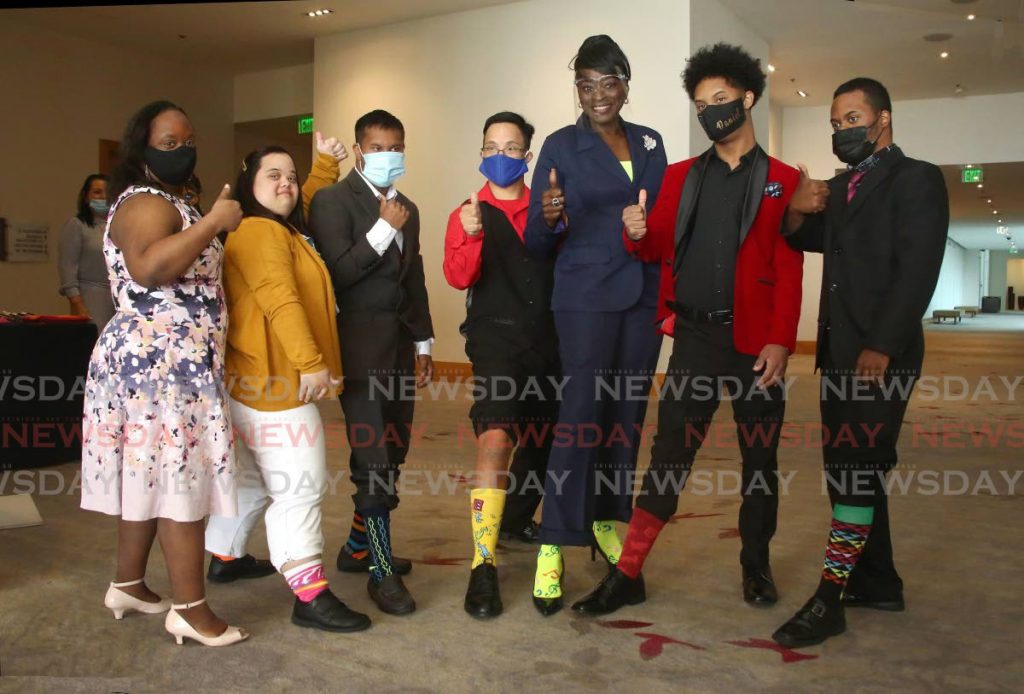Down Syndrome advocates: Challenge government on laws for special needs students

Advocate for inclusive education Diane Richler said Down Syndrome advocates need to be more aggressive in their approach and take the government to task on upholding existing legislation meant to protect students with special needs.
Richler is the Chair of Inclusion International’s – an international network of people with intellectual disabilities and their families – Catalyst for Inclusive Education initiative.
Richler, based in the United States, was speaking virtually at the Down Syndrome Family Network's (DSFN) 9th conference in recognition of World Down Syndrome Day at the Hyatt Regency, Port of Spain on Friday.
“You have to take the government to court,” she said. “That’s what people have done elsewhere.”
Richler said although government officials have said the government is starting to monitor how the rights of people with disabilities are being respected, that is not happening.
“It is clearly not being respected. Maybe you need to remind the government of that. Maybe you need to make it very clear as to where the government is falling down in terms of the legal rights they signed up to.”
Richler referred to the UN Convention on the Rights of Persons with Disabilities, article 24: Right to Education, signed by the government of TT.
“Every country that ratified the convention has to submit a report to the committee responsible for monitoring the implementation of the convention within two years after ratification.
"TT does not appear to have done that. Where is the report?”
She said in other countries where a report is prepared by a government, there are opportunities for civil societies, like the DSFN, to submit alternative reports to be heard by the committee so that it can make recommendations to the government.
“I can tell you in other places where that’s happened and the committee reports have gone public and the media picked up the fact that the government is breaking their own laws, that has led to some changes.”
Richler said people with disabilities have a right to an inclusive education.
Chairman and founder of the DSFN Fitzherbert Niles said while many believe there is a lack of qualified teachers in TT to deal with special needs students, that is not necessarily the case.
“There is not a lack of qualified teachers; it is where these qualified teachers are being placed,” he said.
Many teachers who completed degrees in special education were placed in regular schools, not using the experience they gained from their formal education.
He also said many of them argued their degrees were not recognised without an accompanying certificate.
“Where are these people? What is their function and how are they enabling an inclusive society? It is all about planning and human resource management and not the fact that we do not have qualified teachers."
Minister of Social Development Donna Cox in her address said Cabinet approved the national policy on persons with disabilities as a white paper in May 2019.
It also approved the establishment of an inter-agency committee to promote and monitor the implementation of the UN Convention on the Rights of Persons with Disabilities and the national policy on people with disabilities.
She said members of the inter-agency committee received their instruments of appointment in March and are hard at work.
“It is our commitment to include persons with disabilities in the decision-making process as the ministry seeks to implement the various international human rights instruments which this country has ratified, through this committee.”
Self-advocate for Down Syndrome Christy De Souza said people like her only need to be given a chance to prove that they belong in the classroom and in the workforce.
De Souza is a clerical assistant at the Office of the Prime Minister's Gender and Child Affairs Division.
She said in her position she has learned many skills and has participated in initiatives such as monthly articles for the achievement newsletter and the child rights ambassador’s programme.
“Early exposure is key,” she said. “All we ask is that you give us a chance to show how capable we are. The results will surprise you.”
UN World Down Syndrome Day is commemorated every year on March 21.


Comments
"Down Syndrome advocates: Challenge government on laws for special needs students"